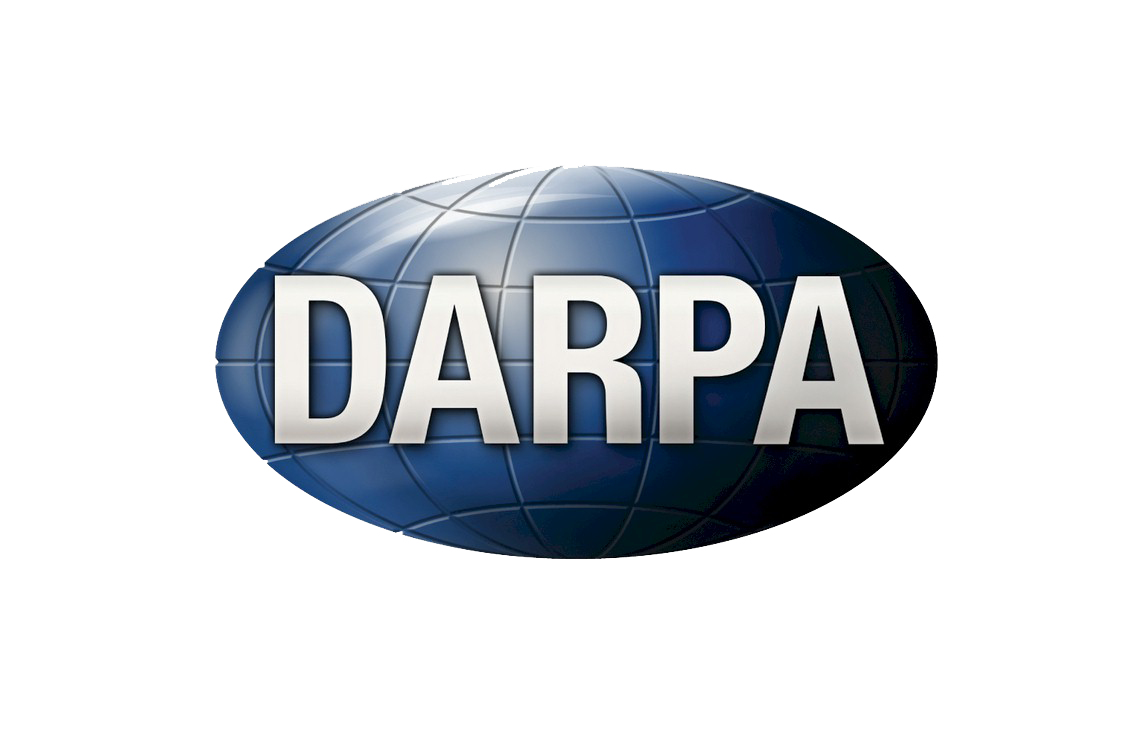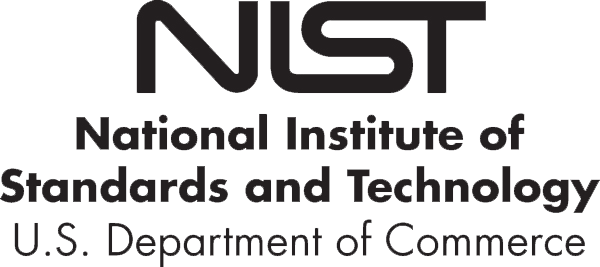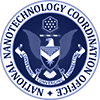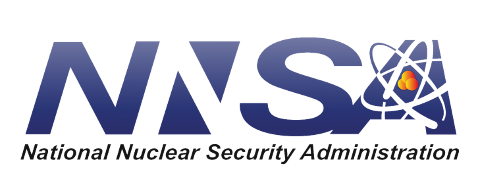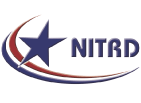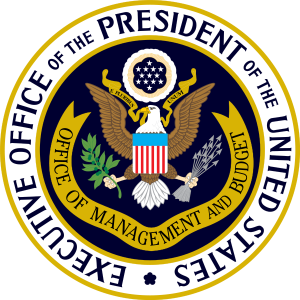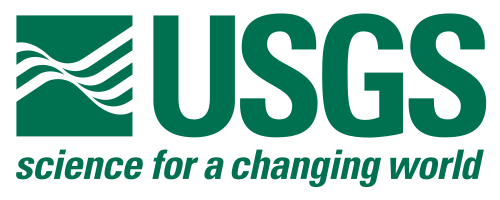Goal 1. Unify the Materials Innovation Infrastructure
The Materials Innovation Infrastructure (MII) is a suite of interdisciplinary tools and capabilities for supporting the MGI approach to materials, including
- Computational (theory, modeling, and simulation) tools
- Experimental (synthesis, characterization, and processing) tools
- Integrated research platforms
- Data infrastructure
We will continue to expand the reach of the MII into all materials properties, synthesis, processing, and manufacturing methods while reducing barriers to integration of data and use of these tools.
Objective 1.
Bridge, Build and Bolster Elements of the MII
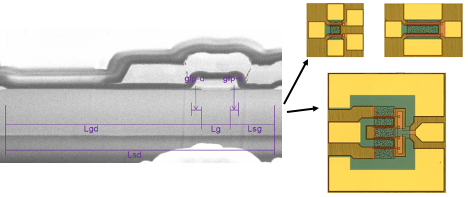
Thousands of transistors within unique devices having varied micrometer-scale physical dimensions were manufactured using a materials genome approach. The electron micrograph cross section (left) has many possible transistor designs (three examples at right) that were tested over many thermal and electrical loading conditions. See https://doi-org.wrs.idm.oclc.org/10.1016/j.jcrysgro.2019.04.008
Credit: Air Force Research Laboratory
- Address gaps in computational tools
- Identify and bridge the current computational tool gaps, especially those that present barriers to accessibility to the diversity of stakeholders along the materials development continuum.
- Leverage and build on the national computational infrastructure by nurturing the development of community codes, and the incorporation of these techniques into commercial codes.
- Build connections to and strengthen collaboration with related communities to bolster cross-disciplinary computational research and tool sharing and development.
- Expand availability of experimental tools
- Develop a strategy to expand synthesis and processing tools to more materials classes and to develop multimodal characterization tools.
- Leverage advances and bolster development of modular, autonomous, integrated, high-throughput experimental tools—from lab to manufacturing.
- Identify and remove barriers that limit access by a diverse user community, including historically black colleges and universities and other minority serving institutions, to state-of-the-art instrumentation.
- Develop integrated materials platforms
- Convene workshops to build community and identify incentives and barriers to collaboration.
- Identify pilot projects to seed the development of integrated materials platforms.
- Learn from industrial exemplars of integrated materials platforms
- Build out a comprehensive data infrastructure
- Create tools, standards, and implement policies to encourage FAIR data principles.
- Support the bridging, building, and bolstering of data infrastructures.
MGI Impact Stories
- Engineering predictable behavior into GaN devices: An approach to accelerating design and optimization
- DMREF: Accelerating the deployment of toxic gas sensors
- Seeking materials with high melting temperature and structural stability
- Integrated research drives the creation of materials knowledge for clean energy
- Materials Innovation Platforms (MIPs)—MGI enhanced by infrastructure and knowledge sharing
Objective 2.
Foster a National Materials Data Network, a Community-Led Alliance of Data Generators and Users from Product Development and Manufacturing, to Recycling
Address the stakeholder incentive challenge
- Identify, collaborate with, and support community efforts towards creating a national materials data network.
- Develop a framework for coupling and integrating public and private data repositories.
- Pilot efforts in automated data workflows from experimental equipment to data repositories.
- Identify and bridge gaps
- Identify, bridge gaps, and unify existing data infrastructures.
- Develop data exchange standards and protocols.
- Identify complementary international efforts for collaboration where practical.
- Develop and implement sustainment strategies, including data infrastructure roadmaps.
Objective 3.
Accelerate Adoption of the MII Through National Grand Challenges
- Raise awareness and build community
- Engage with manufacturers to identify critical capabilities the MII can address.
- Develop opportunities for sustained engagement with industry, academia, and government.
- Promote activities and methods to promulgate successes and tackle our greatest challenges.
- Meet national needs and address global concerns
- Convene a series of third-millennium challenge workshops.
- Develop a multi-agency effort to foster MGI community unification of the MII around third-millennium challenge problems
- Learn from the Human Genome Project
- Conduct a series of workshops and studies to identify the highest risk-reward opportunities.
- Support the creation of HGP-style data and knowledge resources for materials R&D.


